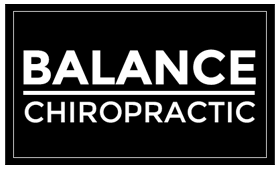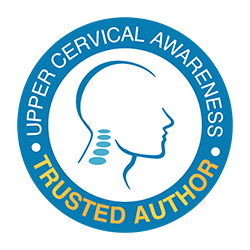Nerve Pain In Colorado Springs CO

Don’t Mingle With The Tingle
Numbness and Tingling is one of the most common complaints for which patients present to our office thinking they have a “pinched nerve” – but what exactly is numbness/tingling, what are some of the common causes, and what can Foundational Correction do to solve it? In this article your Colorado Springs CO Chiropractor will shed some light on the issue!
What Is A Pinched Nerve in Colorado Springs CO?
To understand what a “pinched nerve” really means, we have to understand what exactly a nerve is and how it actually works. Our simple analogy for a pinched nerve is that a nerve behaves like an electrical wire – they send electrical signals back and forth between the body and the brain. Nerves send these signals as the main method of transferring information (the brain-body connection). This information carries everything important for the brain to control the body and for the body to send feedback towards the brain. Muscle tone, vibration, temperature, bodily sensations, signals to digest food, signals to consume food, breath oxygen, empty waste, tissue regeneration, hormone regulation, vision, smell, taste, and even the signal to hold your cheek in tongue during an argument with your spouse are all informational signals carried by our internal electrical system called the nervous system!
Neurotransmitters Are Signal Transmitters
The signal transmission process starts with something called a Neurotransmitter. Believe it or not, the process of sending signals back and forth between the brain and the body does not start and end with electricity. In fact, Neurotransmitters are chemicals that can be released for a variety of reasons: to calm you down, to wake you up, to create movement of the body, to stimulate glands, even to reward you and make you feel good inside! They are released into the space at the beginning of nerves where open receptor sites are available, and once enough of them have bonded and filled the receptor sites of the post synaptic neuron, something called an Action Potential is initiated. Knowing this, you can see how a pinched nerve could be an issue.
Think of an action potential as a charged wave of built-up energy that has increased so much it has the ability to flow powerfully with enough inertia to bring the proper communication to the correct location. Once this wave of energy is ready to flow, it will then use some unique anatomy to jump with great velocity (although different velocities for different types of signals) over insulators called myelin sheaths and onto conductors called Nodes of Ranvier. This action potential wave will flow all the way to another bundle of nerve cells, or to its end organ, tissue or gland communicating its desired action.
Transmitting Pain To The Brain
When narrowing our focus to bodily pain, there are several different types of fibers and speeds at which each fiber transmits information, and sometimes pain, back to the brain. To simplify, there are A, B, and C fibers. The ones that carry pain back to the brain include different classifications of A fibers and C fibers. The A fibers that perceive pain are called the Aδ (A Delta) fibers. These Aδ fibers are myelinated and send “fast” signals to the brain to let it know the body may be in immediate threat (think sharp/electric/zapping pain). The C fibers happen to be unmyelinated and therefore carry slow pain to the brain (think burning, itchy, and dull pain) which are usually indicative of non-immediate threats to the body.
So What’s Making People Mingle With The Tingle?
There are many possible causes for numbness and tingling sensations within the body. It could be caused by anything between a Magnesium/B vitamin deficiency, or diabetes, all the way to a stroke or malignant tumor within the body. Fortunately for patients, both the simple and scary causes of numbness and tingling are usually ruled out or corrected sooner rather than later.
Diagnosing A Pinched Nerve
After the common causes have been ruled out, it is very common for a patient or practitioner to diagnose the cause of numbness/tingling as a pinched nerve. Although in some sense this may be correct, from an elevated perspective this could be much too simplistic of an answer to help the patient achieve long term results when dealing with numbness and tingling.
A nerve could be “pinched” by several common structures. It could be pinched by fascial adhesions that have become over bearing due to repetitive stress and a low oxygen environment. Nerves could be pinched due to swelling associated with pregnancy. Nerves could even be pinched by inflammation associated with structures of the spine being out of alignment. However, if you have ruled out the prior causes and/or had short term relief from trying to correct them with traditional approaches – from a Foundational Correction perspective the issues often start higher up…
If the top bones of the skull (atlas and axis) shift the skull out of its normal alignment with the spine and gravity there can be a structural stress put on the rest of the spinal bones and a neurological stress put upon the corresponding muscles of the spine. Oftentimes this cascade of events is only treated at the end muscle or joint believed to be causing said “nerve compression.” If the stress originator is actually further up the kinetic chain of the human body nearest the skull, obviously a true correction and stabilization cannot be maintained until this issue is addressed.
What To Do If You Think You Have A Pinched Nerve?
If you think you have a pinched nerve, instead of hoping to find the tight muscles or stiff spinal joints that could be causing irritation in the body (numbness and tingling + more), Balance Chiropractic in Colorado Springs uses 4 objective measurements to get straight to the source for finding out whether someone is a good candidate for Foundational Correction – a non-invasive correctional method that requires no popping, twisting or cracking.
To learn more about Foundational Correction in Colorado Springs call (719) 265-0115 to schedule your complimentary consultation today.
OFFICE HOURS
Monday
8:00am - 12:00am
2:00pm - 6:00pm
Tuesday
2:00pm - 6:00pm
Wednesday
8:00am - 12:00am
2:00pm - 6:00pm
Thursday
8:00am - 12:00am
2:00pm - 6:00pm
Friday
Closed
Saturday & Sunday
Closed

Balance Chiropractic
15 Spectrum Loop Suite 110
Colorado Springs, CO 80921




